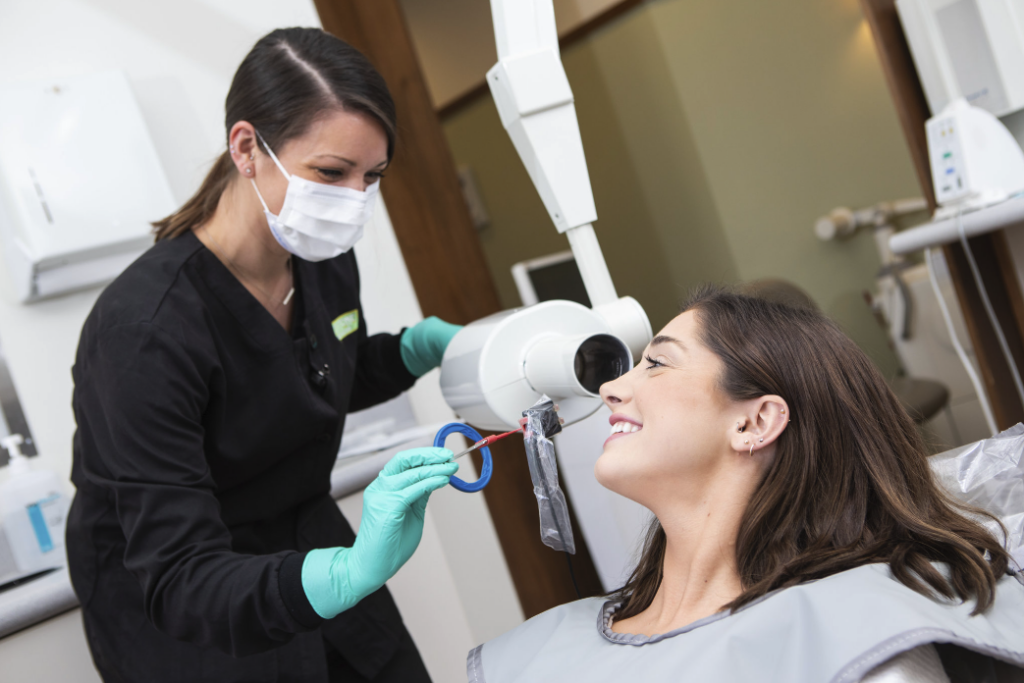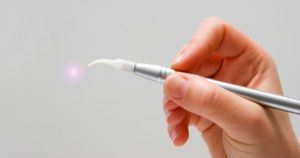Brightening Your Smile: Dealing with Sensitive Teeth After Whitening

Have you recently undergone a teeth whitening treatment and noticed increased tooth sensitivity?
Don’t worry. You’re not alone.
Tooth sensitivity after whitening is a common issue experienced by many individuals.
This article will explore the causes of this sensitivity and effective remedies to alleviate it.
Additionally, we will discuss the significance of professional whitening procedures and provide tips to maintain oral health post-whitening.
Understanding tooth sensitivity
Tooth sensitivity refers to the discomfort or pain experienced when the teeth come into contact with hot or cold stimuli, sweet or acidic foods, or even air exposure.
Enamel erosion or gum recession exposes the underlying layer of the tooth, called dentin, causing sensitivity. Dentin contains microscopic tubules that lead to the tooth’s nerve center, making it sensitive to external factors.
Causes of tooth sensitivity after whitening
- Temporary pulp inflammation: Teeth whitening procedures, whether professional or at home, can cause temporary inflammation in the dental pulp, resulting in sensitivity. The bleaching agents used in whitening treatments can penetrate the tooth enamel and reach the dentin, triggering this response.
- Enamel weakening: Some whitening products, particularly those with high concentrations of hydrogen peroxide, can weaken the tooth enamel if not used properly. Weakened enamel leads to heightened sensitivity as the protective layer becomes compromised.
- Gum irritation: Improper application of whitening gels or trays can cause gum irritation and recession. When the gums recede, the sensitive roots of the teeth become exposed, leading to increased sensitivity.
- Pre-existing dental conditions: Individuals with pre-existing dental conditions like tooth decay, cracked teeth, or gum disease may experience exacerbated sensitivity after whitening procedures. These conditions can make the teeth more vulnerable to external stimuli.
The importance of professional whitening
While various over-the-counter whitening products are available, whitening performed under the supervision of a dentist ensures safety and effectiveness.
Dentists use safe, customized whitening agents and take preventive measures to minimize sensitivity and protect the teeth and gums. Furthermore, professional whitening treatments offer long-lasting results tailored to individual needs.
Precautions to minimize sensitivity
If you’re considering teeth whitening or have recently undergone the procedure, here are some precautions to minimize sensitivity:
- Consult a dentist: Before whitening, consult a dentist to assess your oral health and determine the most suitable whitening method.
- Gradual whitening: Opt for an incremental whitening approach rather than aggressive treatments. This allows your teeth to adjust to the whitening process, minimizing sensitivity.
- Desensitizing gel: Dentists often apply desensitizing gels before or after the whitening procedure to reduce sensitivity. These gels contain ingredients that soothe the nerves and protect the teeth.
- Custom-fitted trays: If using at-home whitening kits, choose those that provide custom-fitted trays to ensure proper application and minimize gum irritation.
- Avoid extreme temperatures: During the initial days after whitening, avoid consuming extremely hot or cold foods and beverages, as they can trigger sensitivity.
- Limit acidic foods: Acidic foods and drinks can erode the tooth enamel, worsening sensitivity. Minimize consumption of citrus fruits, sodas, and acidic juices.
Home remedies for sensitive teeth
If you experience sensitivity after whitening, try these home remedies to alleviate discomfort:
- Desensitizing toothpaste: Use a desensitizing toothpaste containing ingredients like potassium nitrate or strontium chloride. These kinds of toothpaste help block the nerve pathways and reduce sensitivity over time.
- Saltwater rinses: Rinse your mouth with warm saltwater to soothe the gums and reduce sensitivity. Dissolve half a teaspoon of salt in eight ounces of warm water and swish it around your mouth for 30 seconds before spitting it out.
- Oil pulling: Oil pulling with coconut oil can help reduce sensitivity. Swish one tablespoon of coconut oil in your mouth for 15 minutes, then spit it out. This practice can help soothe the gums and promote oral health.
- Avoid teeth grinding: Teeth grinding can exacerbate tooth sensitivity. If you have a teeth-grinding habit, consider using a mouthguard at night to protect your teeth and alleviate sensitivity.
- Avoid whitening products: Temporarily avoid using any whitening products until the sensitivity subsides. This gives your teeth time to recover and reduces the risk of further aggravating the sensitivity.
Over-the-counter products for tooth sensitivity
In addition to home remedies, several over-the-counter products are available to help alleviate tooth sensitivity:
- Sensitive toothpaste: Use a toothpaste specifically designed for sensitive teeth. These kinds of toothpaste contain ingredients that help block the tubules in the dentin and reduce sensitivity.
- Fluoride mouthwash: Rinse with a fluoride mouthwash after brushing your teeth. Fluoride helps strengthen the enamel and reduce sensitivity.
- Desensitizing gel or rinse: Over-the-counter desensitizing gels or rinses can temporarily relieve sensitivity. Follow the instructions on the product for safe and effective use.
Maintaining oral health after whitening
To maintain a healthy smile after whitening, follow these essential oral care practices:
- Regular brushing and flossing: Brush your teeth at least twice a day with a soft-bristle toothbrush and fluoride toothpaste. Additionally, floss daily to remove plaque and debris from between the teeth.
- Gentle brushing technique: Avoid aggressive brushing, as it can wear down the enamel and contribute to sensitivity. Use soft, circular motions and a soft-bristle toothbrush.
- Regular dental checkups: Visit your dentist regularly for checkups and professional cleanings. Regular dental visits help identify and address oral health issues before they worsen.
- Reduce consumption of staining agents: To maintain the results of your whitening treatment, limit your intake of staining agents like coffee, tea, red wine, and tobacco.
- Use a straw: When consuming acidic or sugary beverages, use a straw to minimize contact with the teeth and reduce the risk of enamel erosion and sensitivity.
FAQs
Is tooth sensitivity after whitening permanent?
Tooth sensitivity after whitening is usually temporary and subsides within a few days or weeks. If it persists or becomes severe, consult your dentist for further evaluation.
Can I use home remedies immediately after whitening my teeth?
It is advisable to wait a day or two before trying home remedies after whitening. Give your teeth time to recover from the procedure before introducing any additional treatments.
How long do the results of professional whitening treatments last?
The longevity of whitening results varies depending on individual habits and oral care practices. Professional whitening results can last several months to a few years with proper maintenance and avoidance staining agents.
Are there any side effects of using desensitizing toothpaste?
Desensitizing toothpaste is generally safe to use. However, if you experience any adverse reactions or the sensitivity worsens, discontinue use and consult your dentist.
Can tooth sensitivity be prevented entirely during whitening?
While it may not be possible to prevent sensitivity entirely, following the recommended precautions, using desensitizing gels, and opting for professional whitening can significantly minimize sensitivity risks.
Conclusion
Tooth sensitivity after whitening is a common and temporary issue.
By understanding the causes of sensitivity, opting for professional whitening procedures, and taking proper precautions, you can minimize discomfort and enjoy the benefits of a brighter smile.
Remember to maintain good oral hygiene practices, explore home remedies, and consider over-the-counter products to alleviate sensitivity.
If symptoms persist or worsen, consult your dentist for further evaluation and guidance.
Or:
- Call us at: (317) 575-1120
- Email us directly at: reception@keystonedentistry.com
Keystone Dentistry is located in Indianapolis, IN, and we happily welcome folks from neighboring areas.

